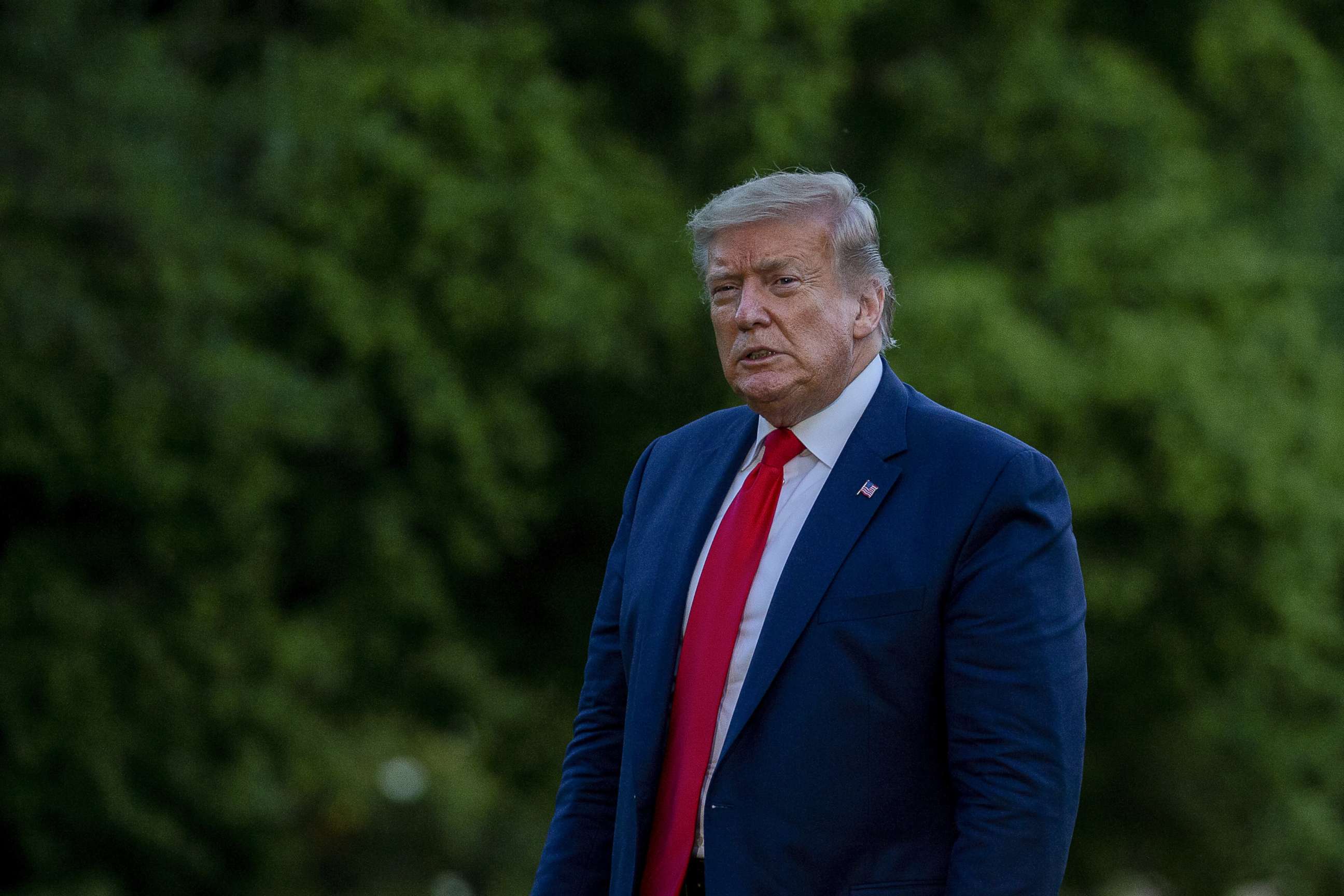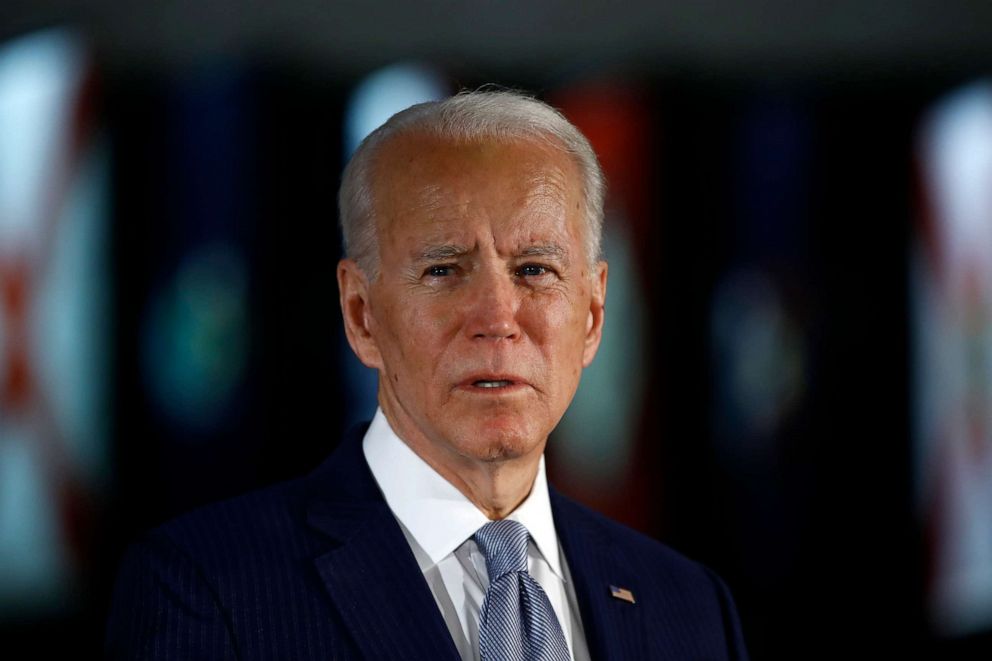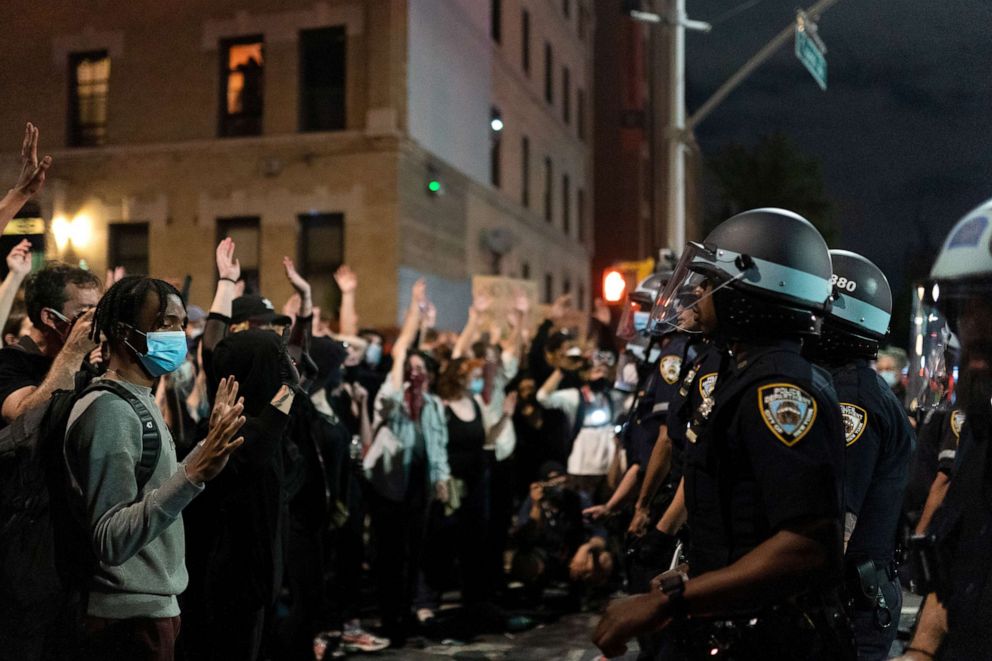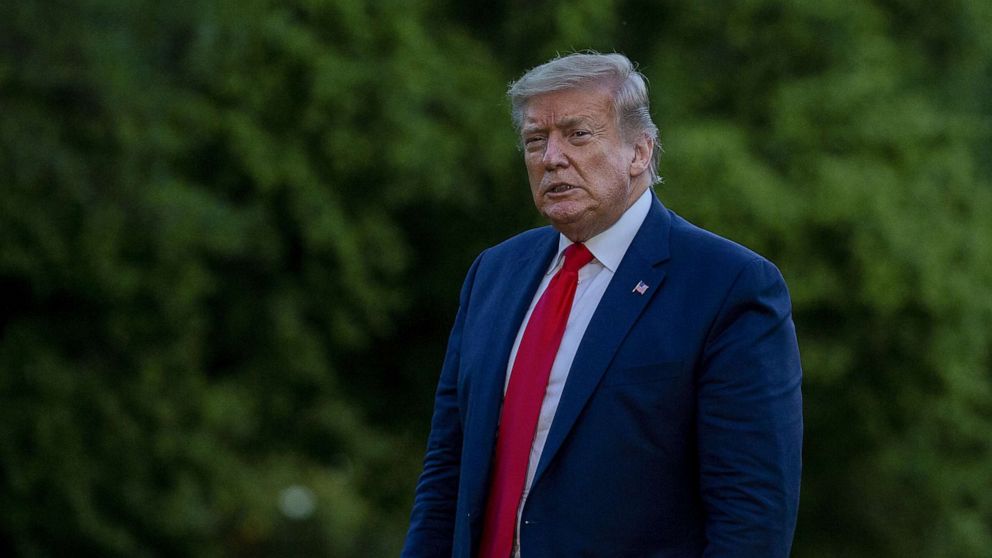The Note: After days of silence, Trump's words fan the flames of unrest
The TAKE with MaryAlice Parks
First, he was silent. Then, President Donald Trump suggested violent and extreme actions from law enforcement -- exactly what had moved Americans to protest in the first place.
For days last week following George Floyd's shocking death at the hands of police -- when even leaders in his own party were calling for the officers involved to be arrested – the president was mum. He was talking about conspiracy theories and the economy, but not about Floyd.
Not about fear of instant profiling or possible quick use of excessive force that some citizens live with every day, because of the color of their skin.
It took days for the president to acknowledge the obvious fact that Floyd's death was compounding pain and anger nationwide, and that initial silence made his tweets over the weekend even more venomous.

When widespread protests and unrest grew across the country, the president pushed for more and more militarization of the streets. While some police chiefs were finding success calming crowds by lowering their shields, the president was issuing threats about using even more military power to control citizens. And he was invoking decades-old, dark images from the most painful moments in the country's struggle for civil rights.
Sen. Tim Scott, R-S.C., the lone black Republican in the Senate, said Trump's tweets were "not constructive." Atlanta Mayor Keisha Lance Bottoms went a step further and asked him to "just stop talking."
What is clear is that in the same way the president struggled to offer condolences and empathy for the victims of COVID-19, he also has had no words for those Americans exhausted by the country's other ills.
The RUNDOWN with Alisa Wiersema
As Democrats across the country sharpen their rhetoric in hopes of mobilizing Americans to the polls amid the dual crises of a global pandemic and national civil unrest, Tuesday's primaries -- which encompass the single biggest day of voting during the spread of the coronavirus pandemic -- could serve as a symbolic launchpad for the next several months of campaigning ahead of November.
For Vice President Joe Biden, who has relied heavily on support from the African-American community throughout this year's Democratic primary, the moment is ripe for highlighting the sentiment on which he launched his presidential campaign. In his remarks Friday addressing the death of George Floyd, the former vice president said "the soul of America is at stake" and alluded to President Trump's tweets that lashed out at protesters and some Democratic officials.
"This is no time for incendiary ... tweets. It's no time to encourage violence," Biden said. "This is a national crisis, and we need real leadership right now -- leadership that will bring everyone to the table so we can take measures to root out systemic racism."

As protests, including those around the White House, continued over the weekend, President Trump took to Twitter with a threat aimed at Democratic governors and mayors, saying they "must get MUCH tougher or the Federal Government will step in and do what has to be done, and that includes using the unlimited power of our Military and many arrests."
"We are tired of fearing, we're tired of walking out every day and not being surprised to walk back home. We're tired of it. So that's all I want the president to know ... I'm gonna respect you as our president. But you need to respect my black life too," protester Arianna Evans told ABC News reporters at a demonstration outside of the White House Saturday.
Tuesday's election contests, which are set to happen across eight states and the District of Columbia, have already been part of a tense political discourse with regard to mail voting. Despite election officials on both sides of the aisle working to expand access at the ballot box amid the pandemic by utilizing the alternative voting method, President Trump has railed against the move with unsubstantiated allegations of mail voting being more susceptible to fraud.
Amid the ongoing unrest, the political tangles on multiple fronts now put into question whether voting is enough of a political statement for a weary electorate.
The TIP with Molly Nagle
Presumptive Democratic nominee Joe Biden was already facing pressure to select a woman of color as his running mate -- but that pressure has only grown in the wake of protests over the death of George Floyd.
This weekend saw several women believed to be on Biden's list of candidates speaking out in support of the protests -- Sen. Kamala Harris joined protesters outside the White House Saturday afternoon and Florida Rep. Val Demings, a former Orlando police chief, spoke out about police behavior during the protests.

However, one woman thought by many to stand near the top of Biden's VP list, Minnesota Sen. Amy Klobuchar, has seen her stock fall amid renewed scrutiny over her record in as Hennepin County attorney -- an issue that followed her on the campaign trail but has now cast questions about her vice presidential viability in light of Floyd's death in her home state.
The former vice president has been open about his vice presidential search, repeatedly saying more than one woman of color is under consideration for the position he once held. However, even as outrage has roiled the nation, Biden has stopped short of promising a woman of color will join him on the ticket, saying, "It's not the only criteria to determine who will be the vice chair of the United States of America."
BRINGING AMERICA BACK
People across the country have been blatantly defying social distancing and face-covering rules, but it's part of what public health experts say is a long-standing issue: the challenges people face in assessing risk. Read this story and more by checking out Bringing America Back, an ABC News feature that highlights the day's top stories in economic recovery and medical preparedness amid the coronavirus pandemic.
THE PLAYLIST
ABC News' "Start Here" podcast. Monday morning's episode features ABC News' Alex Perez, Matt Gutman and Beatrice Peterson who discuss how protests have exploded across the country in the wake of George Floyd's death at the hands of a Minneapolis police officer. Then, ABC News Chief Justice correspondent Pierre Thomas explains what role outside agitators may be playing in the destruction of property during these demonstrations. And, ABC News Deputy Political Director MaryAlice Parks examines President Donald Trump's response to the unrest. http://apple.co/2HPocUL
WHAT YOU NEED TO KNOW TODAY
Download the ABC News app and select "The Note" as an item of interest to receive the day's sharpest political analysis.The Note is a daily ABC News feature that highlights the day's top stories in politics. Please check back tomorrow for the latest.




